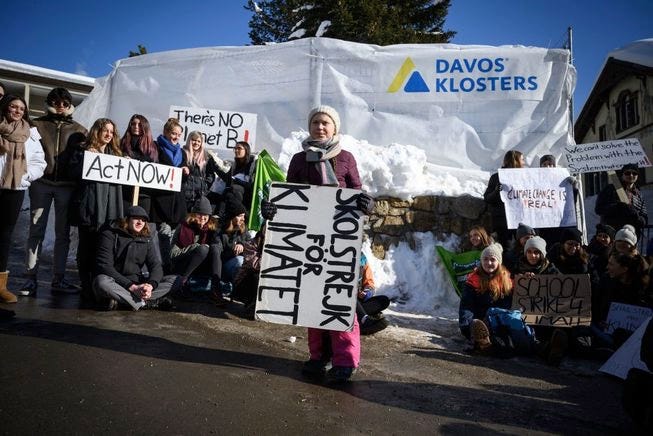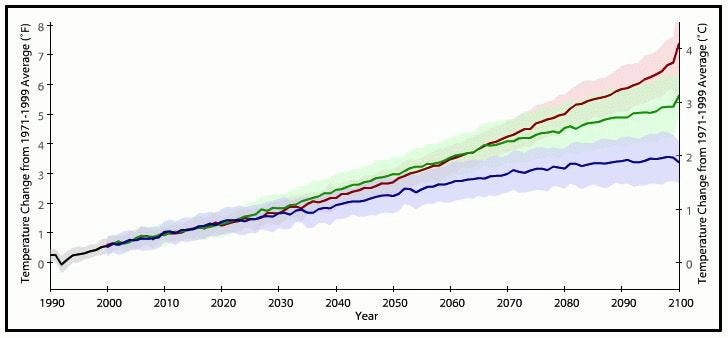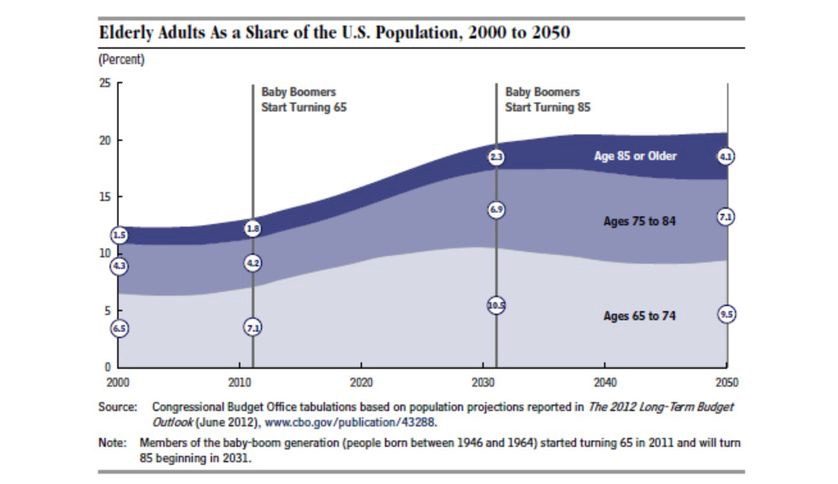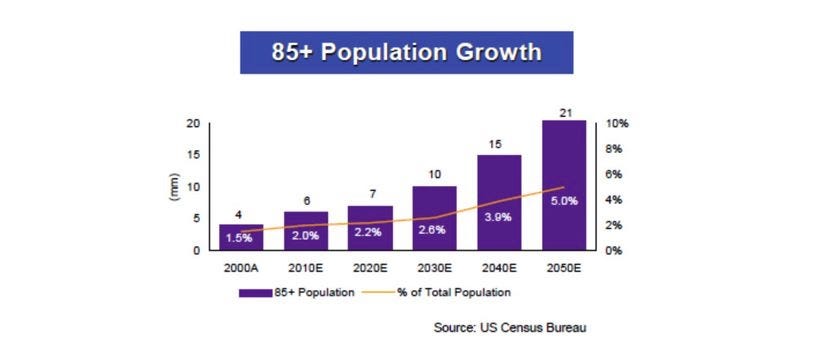From the archives: Baby boomers will be among the hardest hit by climate change
And no, they won’t all be dead before its effects hit us all hard.
I spent my birthday on Tuesday thinking about getting older. (I should have taken John Maynard Keynes’ advice and drunk more champagne). I looked back at my archives of deleted posts about aging. Here is the last one from the Mother Nature Network, February 2019; add or subtract 5 years to everything as appropriate.

The 16-year-old activist Greta Thunberg complains about older generations: “You say you love your children above all else, and yet you are stealing their future in front of their very eyes.” Bruce Gibney, in “A Generation of Sociopaths: How the Baby Boomers Betrayed America,” wrote, “Unlike acid rain, which had immediate impacts on Boomers’ quality of life and was therefore swiftly addressed, climate change is a problem whose consequences will fall most heavily on other generations, so far too little has been done.”
And you know what? They’re all wrong in thinking that the baby boomers will all be dead before it hits the fan. But as David Foot noted, “demographics explain about two thirds of everything,” and when you look at the demographics, it’s clear the baby boomer generation is going to be hit very hard indeed — and they’ll be hit when they’re least able to cope. These graphics make the point loud and clear:
Temperatures are rising faster than you think, and climate change is happening now.
As Matt Hickman has noted, the Intergovernmental Panel on Climate Change (IPCC) has determined that we have to cut emissions by 45 percent from 2010 levels by 2030 and get to net zero by 2050 to avoid catastrophic effects. But all this talk about 2030 makes it sound like nothing is happening now. In fact, Matt quotes a climatologist: “One of the key messages that comes out very strongly from this report is that we are already seeing the consequences of 1 degree Celsius of global warming through more extreme weather, rising sea levels and diminishing Arctic sea ice, among other changes.” Climate change is happening now, and the effects are just going to get worse every year. All the graphics point to how disastrous things will be in 2100, when all the baby boomers will be well and truly dead. But it will still plenty be hot in 2050.
There are a lot of baby boomers —and they’re younger than you think
The baby boomers are no longer the largest generational cohort; there are now more millennials. But they still encompass a huge number, and the youngest of them are just 55 years old. They’re going to be around for a while.
There will still be a lot of baby boomers in 2050
The vast majority of baby boomers will still be around in 2030 and a lot of them (perhaps 21 million) will still be kicking in 2050.
So, what’s life like for an aging boomer between 2030 and 2050?
Who knows? Most projections are still out to 2100. But the latest evidence is that climate change is happening even faster than predicted. A recent report in Nature suggests things are going to get worse fast, which means we have to act fast.
Governments need to invest even more urgently in schemes that protect homes from floods and fires and help people to manage heat stress (especially older individuals and those living in poverty). Nations need to make their forests and farms more resilient to droughts, and prepare coasts for inundation.
In every disaster, the older population suffers the most. They’re not as mobile, they are affected by the heat and cold the most, they are susceptible to disease. The Young Foundation did a report called Heatwave, looking at the unprecedented European heat wave of 2003, and the vast majority of the 15,000 people who died in France were over 75 years old, which is similar to the stats from the heat wave in Chicago in 1995.
In 2050, roughly one in three baby boomers will still be alive — 21 million old people who will need help, whose retirement properties in Arizona will be too hot to bear, whose houses in the Carolinas or Florida will be flooded out, and whose homes in the forests will have likely burned. If their pensions had been invested in oil and gas, they will likely be living in poverty.
Young people are far more resilient and adaptable than the old, and they can follow the jobs and the water and move to Buffalo or Detroit. Old people are often stuck.
Some can pretend all they like that climate change is a hoax or think they will be dead and gone before it gets bad.
But really, any baby boomer who doesn’t think climate change is going to affect them personally is just kidding themselves.








Lloyd, it was highly insightful of you to include in your MNN article the Bruce Gibney quote of: “‘Unlike acid rain, which had immediate impacts on Boomers’ quality of life and was therefore swiftly addressed, climate change is a problem whose consequences will fall most heavily on other generations, so far too little has been done.’” Gibney couldn’t be any more correct.
I prefer to frame the situation thusly: The construct of climate change is abstract while that of global warming (like acid rain) is exact.
While the catchphrase “climate change” may be all the rage, as in the notion itself having the impact it is having on people’s lives, between climate change and global warming, the former with most people IMO resonates the least. Just saying.
What I would rather the focus of discussion be on, is in addressing the underlying causes: combustion from the burning of fossil fuels and that which is derived from other human-driven inputs like deforestation activities, for one.
In my one small corner of the world, California’s San Joaquin Valley, the cold-weather climate has over the past couple of decades changed appreciably. Area farmers should know this better than anyone regarding the way in which said change has altered growing seasons, harvests and the most impactful of all, water use. The last has become such a contentious issue here of late.
>>"But as David Foot noted, “demographics explain about two thirds of everything,”
Then be of good cheer, because U.S. fertility rates—as are all of every Western developed nation—are in steep decline, and as I've oft pointed out in the past, it's all about the raw number of people in developed nations using energy that has the greatest influence on emissions. Eliminate 100% of U.S. citizens Thanos-style, all 341 million of us, and I guarantee that within 2 years' time there would be 341 million from elsewhere around the world who would move in to replace us native citizens because our economy represents such a vast improvement over so many other less fortunate ones.
A. Eliminate billions of people = reducing emissions to desired levels
B. Reduce the standard of living for all Western nations = reducing emissions to desired levels
Which option has the better chance of occurring voluntarily?